The Next Web struggles to deal with sustainability issues
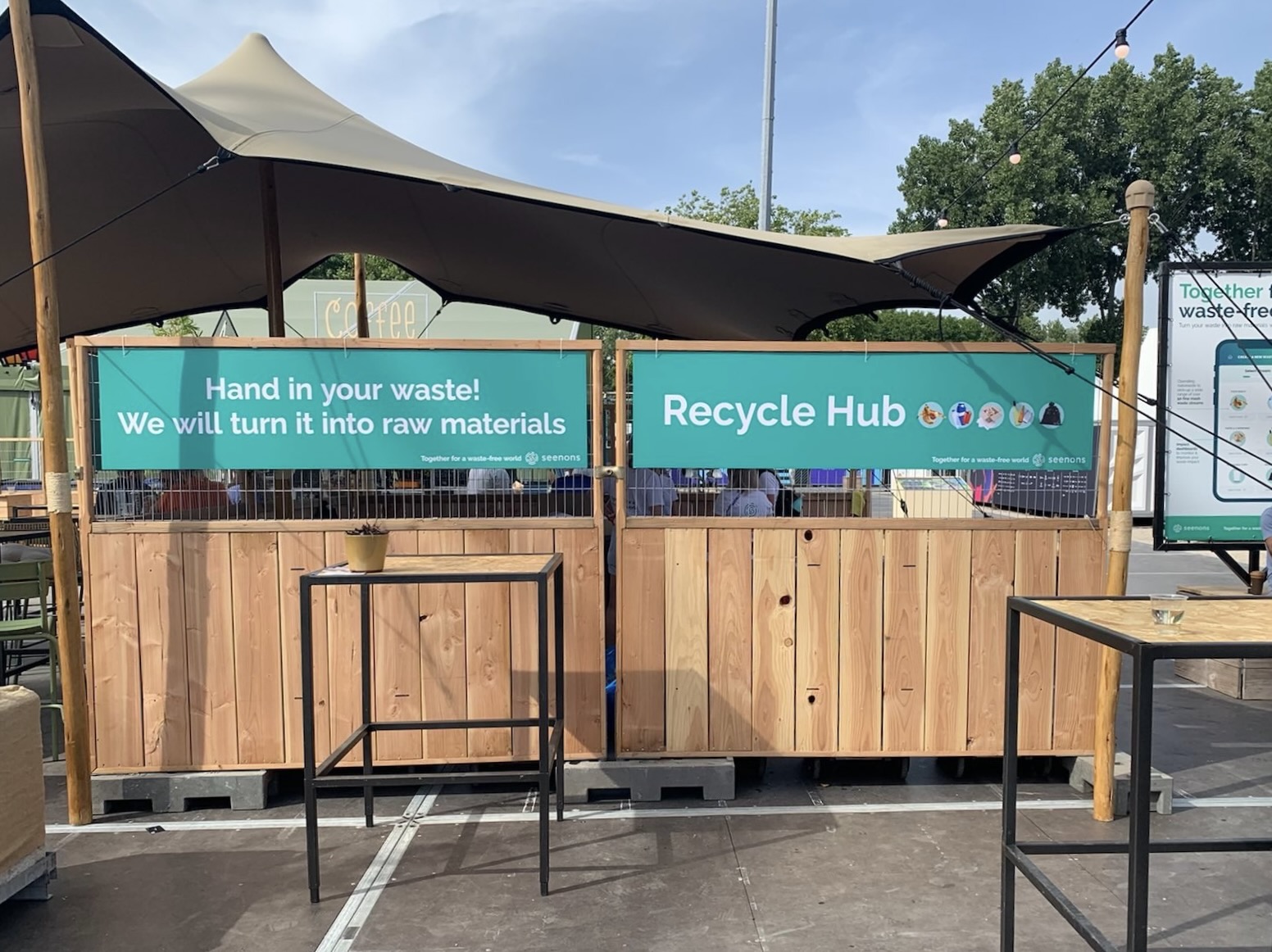
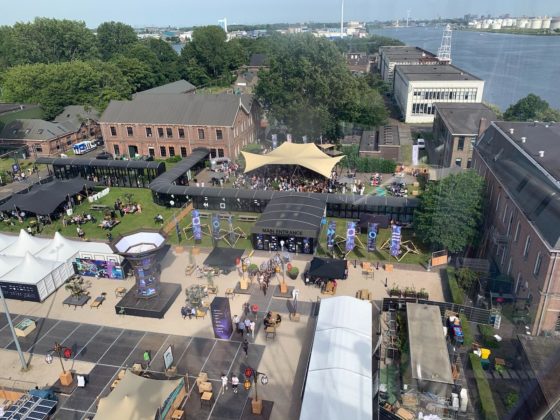
The intense heat of the two sunny days at The Next Web (TNW) conference underlined the importance of a topic that was prominent, although not central: sustainability and climate impact.
TNW attendees could listen to sustainability talks on side stages and visit the booths of climate-focused companies while enjoying a vegetarian lunch menu and drinks in single-use plastic cups.
Intending to showcase the latest tech innovations, TNW2022 focused on advancements in finance, start-up success, and corporate inclusivity. Sustainability was a smaller part of the programme, with only one out of 10 topical talks, by The Ocean Cleanup’s founder Boyan Slat, happening on the main stage.
‘We try to have an overall coverage of all new things in tech. Sustainability is part of that,’ says Martijn Vrijken, senior events manager at TNW. Attendees could hear about building circular business models, the advent of climate fin-tech, increasing products’ climate impact, and financing the climate transition.
Market-based climate
Several speakers pointed at a new generation of consumers as the driver of change. ‘Gen Z wants climate in their product,’ Bram Veenhof from South Pole asserted in his talk ‘Simple ways for your company’s product to have climate impact’.
Simultaneously, there was an understanding that further change in consumer behaviour is necessary to stimulate commercial climate action. ‘Consumers don’t put their money where their mouth is,’ Patrick Layer, one of the speakers, said.
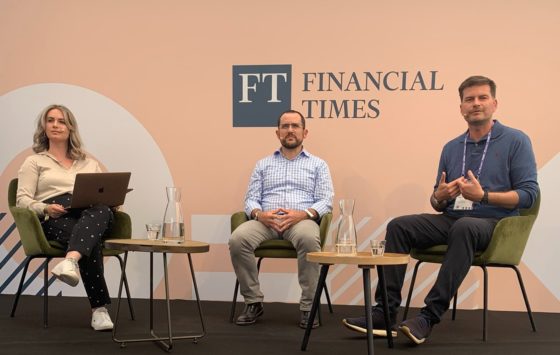
Conventional narratives
Layer’s statement was met with a fierce disagreement from an audience member, who argued it is companies, rather than individual consumers, which need to change. Environmental group Friends of the Earth has also argued that highlighting the role of the individual is a favourite narrative of the business community as it allows corporations to move slowly on climate action.
Carbon offsetting, another contested climate option, was high on the agenda, too, present in on-stage talks, several exhibition booths, and organisational aspects. For example, attendees could offset the emissions related to their travelling to the conference.
In the booths
The most innovative sustainability-focused exhibitors either used technology to reduce climate change or set out to tackle environmental issues that new technologies bring.
The winner of the Pitch Battle for TNW Start-up Program finalists, the Swap Studio, built a blockchain-based platform for swapping clothes. Each item is tokenised, meaning that its parameters are put on a publicly available ledger. ‘This way, fashion producers can see their product circulate and measure the environmental impact of their e-commerce,’ Nilofer Christensen, Swap Studio’s co-founder, said.
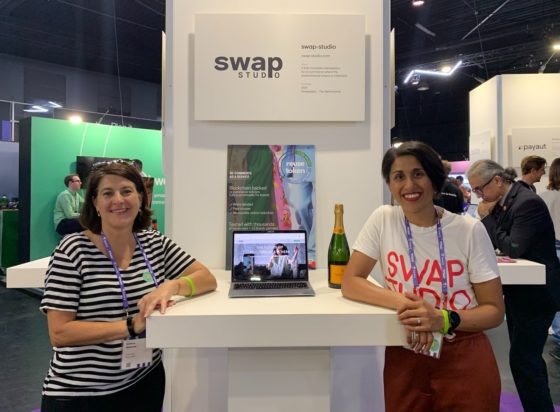
Amsterdam-based start-up LeafCloud aims to tackle the ever-growing emissions from data centres by connecting waste heat to heating showers in commercial venues, such as hotels. The company already operates in a few data centres in the Netherlands.
Simultaneously, several exhibitors proposed solutions that were already well-established, for example, yet another reusable water bottle. TNW, said Vrijken, aims to give space to ‘not only companies that are new but also those that already made it, to showcase what they’ve done to make this world a better place.’
Organisational sustainability
TNW has the ambition to be, in Vrijken’s words, ‘a great sustainable event’. The organisers pledged to work on eight sustainability areas, from powering the stages with reusable energy through reducing the amount of waste, to saving water through an all-vegetarian menu.
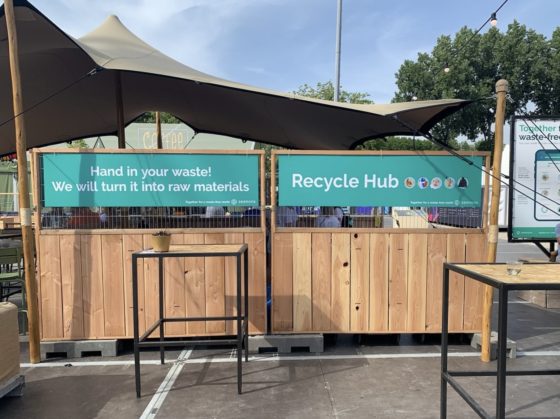
Vrijken says TNW’s goal of powering 75% of the conference’s energy needs with wind energy was achieved and the remaining energy came from biofuel. Another solution was the less wasteful build-up of the exhibition area, using recycled materials. ‘We built with nothing new,’ Vrijken said.
Two water refill spots and a seaweed burger were more obvious to the general public. So was the ‘recycling hub’ which encouraged the visitors to separate their trash, although the design of the bins didn’t fit certain plastic cups.
The single-use cups, even if biodegradable, were the most obvious eyebrow-raiser for the event’s sustainability claims. Vrijken quoted ‘logistical issues’, such as hiring staff to pick up reusable cups, alongside partner advice, as the rationale behind this choice. ‘The plastic cups were a big topic this year,’ he said. ‘We will see what to do about them next year.’
Thank you for donating to DutchNews.nl.
We could not provide the Dutch News service, and keep it free of charge, without the generous support of our readers. Your donations allow us to report on issues you tell us matter, and provide you with a summary of the most important Dutch news each day.
Make a donation